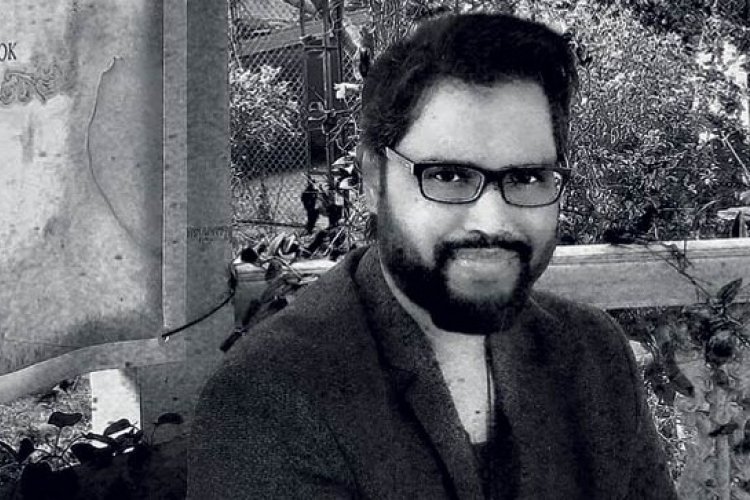From Baghdad To Beijing
The American Renaud brothers are known for their hard-hitting cinema verite documentary films, which have ranged on topics from college football rivalries to US soldiers in Iraq. It was there that the two witnessed severe injuries firsthand, and learned of the sporting program that turns wounded veterans into Paralympic athletes. Their current project, Warrior Champions: From Baghdad to Beijing, follows former soldiers as they train for the 2008 Paralympic Games. Brent Renaud spoke to Alex Pasternack from New York, just before leaving for Okinawa to join the US Team in training. The brothers are producing web videos for the US Paralympic team while they are in Beijing, you can view the videos here. Melissa Stockwell failed to qualify for the 100m Freestyle and Butterfly earlier this week, she'll be competing in the 400m Freestyle on Friday morning.
This interview first appeared In the September issue of Urbane.
Alex Pasternack: How did this film come about?
Brent Renaud: There’s a scene in our film Off to War shortly after we get to Baghdad when a mortar hits the base where I’m staying with the soldiers. A number of them were killed, a number of them were injured; one of the soldiers I was with that day ended up losing his arm and having problems with one of this legs. When he returned to the States he started getting involved with these sports programs for injured veterans. They say if you or I get injured or lose a leg, we’d need to train full time for six or seven years and then we might be able to reach that level. But some of these soldiers have done it in less than year. It’s a pretty remarkable story.
AP: How do these veterans manage to get prepared so quickly? Is it because war has sharpened them physically and mentally? And does their presence give the US an advantage?
BR: The soldiers are obviously in great shape and have an incredible drive, an incredible toughness instilled in them. And it’s a chance for them to wear that US uniform again. But in terms of the injured in the Iraq war, or fighting the War on Terror, there are only three Paralympians. In four years, they expect that 20 percent of the entire US team will be made of these athletes. But for now, these are the pioneers. They’re not a shoo-in in their categories by any means. All of their times are right on the edge, and it’s unclear how they’re going to handle the pressure of the Paralympics. So they haven’t given the US an advantage just yet.
AP: Has there been a particularly memorable moment for you?
BR: A special moment for me was at the Paralympic Swim Team Trials this past year. Melissa Stockwell, the first female amputee from the Iraq War, had been training for a year in order to make the Paralympic team and go to Beijing. It was already astonishing that in such a short time she had reached the level to where she could compete for a spot on the US team, but in the lead-up to the trials, her times were just not looking like they were going to be good enough to make the team. No one said so aloud, but the mood among many was that she might not be ready. Some wondered if she could perform under the pressure. But at trials, Melissa shocked the world. She shaved 13 seconds off her all-time best swim, set a new American record and made the team. It was an extraordinary comeback, and now Melissa is a medal hopeful in Beijing. I think what partly made this so moving, besides the awe-inspiring athletic achievement that it was, is that it’s really symbolic of the incredible ordeal our injured soldiers go through once they return home from Iraq and Afghanistan. Many feel broken when they return, and don’t know how to go on with a life that is so changed forever. An alarming number have even taken their own lives. Melissa’s achievement sent a huge message to returning soldiers and other Americans with disabilities, that yes, it’s hard, sometimes it even seems like you won’t be able to make it, but truly, anything is possible.
AP: How far have the Games come in terms of garnering attention from sponsors and the public?
BR: In 1984, Olympic host Sarejevo said it would not host the Paralympics. They just didn’t want to deal with it. Innsbruck, Austria, jumped in at the last minute to hold it instead. That’s no longer a possibility. The Olympics have an agreement with the Paralympics to be held in the same place. This year, NBC Universal will have TV coverage in the US, about two hours a day, which is a huge step. Sponsorship for Paralympic athletes is also a new thing. The Iraq war veterans have got a tremendous amount of news coverage. Also, the US Olympic Committee has taken the Paralympics under its wing, inviting the athletes to use its facilities. The Paralympic movement is also spreading fast to sport below the elite level, intending to bring disabled sports programs to communities around the US. This social ambition to bring sports to young people who need it to get their lives back on track is something that the regular Olympics doesn’t usually address.
AP: What are the expectations of the US team for Beijing?
BR: In the same way that China seems to have gone out of its way to make the Olympics so extraordinary, there is a hope and an expectation that they’ll do the same thing for the Paralympics. The US team has a lot of hopes for medals this year. The coverage that this year’s Olympics got, being in China, made it more exciting than if it had been in the US. It has really gotten the athletes pumped up – and made them really nervous too about the competition.
AP: What have you taken from this experience?
BR: It’s hard to feel sorry for yourself when you meet an athlete with no arms and no legs trying to reach these goals, trying to work. Most importantly, we all get busy with our lives and it’s easy to not pay attention to people with disabilities. Even in the US there is an incredible lack of programs for people with disabilities. Just understanding that is important. Seeing what these sports programs can do for these kids and soldiers with disabilities, it’s inspiring.
Links and Sources
Renaud Brothers Site
Renaud Brothers Blogspot
US Paralympic Team Site
Youtube: Renaud Brothers
paralympics.teamusa.org: Melissa Stockwell's Beijing Paralympics Blog
Blogspot: Melissa Stockwell
utube: Interview with Stockwell
USA Today: Stockwell image






